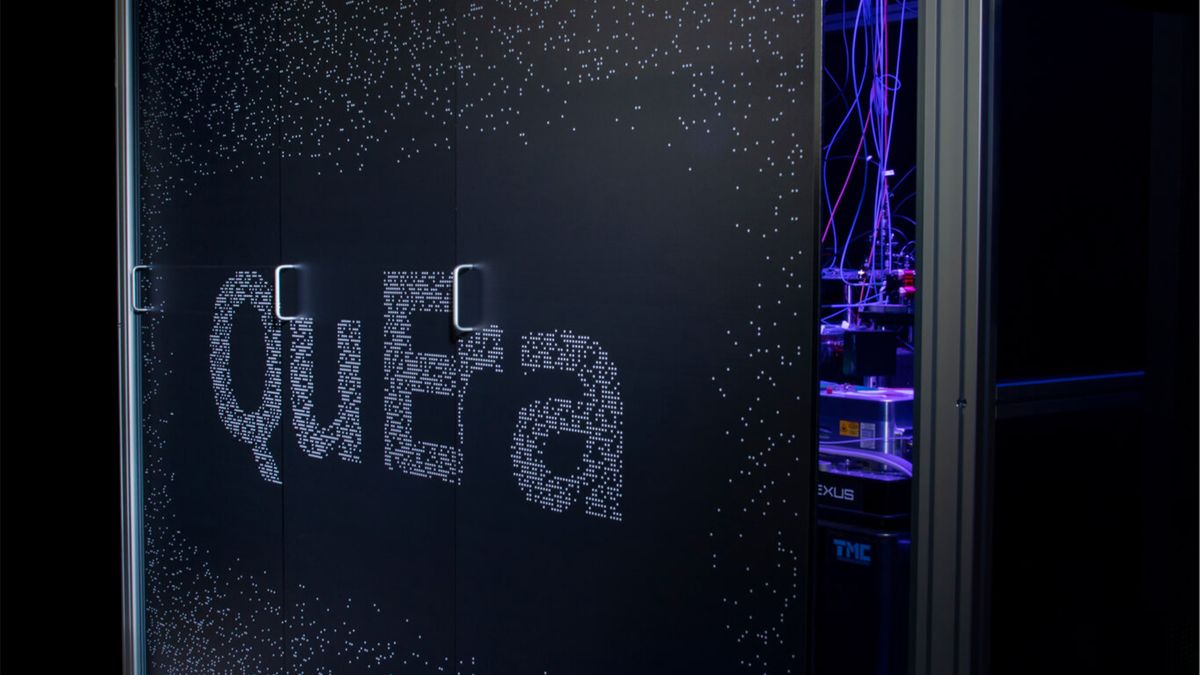QuEra Computing just raised $230 million to pioneer “fault-tolerant” quantum computing – and it even got Google’s seal of approval

Quantum startup QuEra Computing has raised $230 million in funding in one of the industry’s biggest investment rounds to date.
The funding round saw QuEra secure pledges from a host of major backers, including Google through its Google Quantum AI business unit, SoftBank Vision Fund 2, Valor Equity Partners, and more.
Based in Boston, Massachusetts, QuEra Computing specializes in the development and production of quantum computers using “neutral” atom-based qubits. Using lasers to “trap” individual atoms in place, the company claims it can improve efficiency and reduce errors, therefore streamlining the process.
“We use lasers, acting as optical tweezers, to trap individual atoms in place. The lasers suppress atomic movement, effectively cooling the atoms down to nearly absolute zero temperature,” according to QuEra promotional materials.
“At these temperatures, the individual discrete energy levels of the atoms can be resolved and manipulated, some of them leading to huge coherence times exceeding one second.”
QuEra has been operating since 2018, and the firm has worked closely with researchers at Harvard University and MIT to build and operate the world’s largest publicly accessible quantum computer, which is available for use via public cloud or in an on-prem capacity.
Following the investment, QuEra said it plans to accelerate the development of “fault-tolerant quantum computer technology”.
Quantum computers are prone to generating faults within processing because qubits can be disrupted by minor environmental changes such as shifting temperatures or radio signals, creating challenges for users.
“Fault tolerance” refers to the ability for quantum systems to correct errors during processing where possible and to still operate correctly despite persistent errors.
QuEra intends to expand headcount in the wake of the funding round alongside expanding test capacity to scale up and meet demand for high-performance quantum computing – with a particular focus on meeting demand from global research organizations and Fortune 500 companies.
Andy Ory, interim chief executive at QuEra, said the funding represents a “significant milestone” for the company in its bid to provide scalable, accessible quantum computing capabilities.
“Since our last funding round in 2023, we have achieved impressive scientific, technical, and commercial milestones, which have dramatically increased the value of our business,” he said.
“This new investment will fuel our next phase of growth, enabling us to deliver large-scale quantum solutions that address critical business challenges for our customers.”
Quantum computing funding is growing
Big tech interest in quantum computing has been growing steadily in recent years, especially since the rise of generative AI.
Figures from Crunchbase released in November 2024 showed quantum startups had raised $1.5 billion in VC funding in the first three quarters of the year. This marked a significant increase on the $785 million raised in the year prior.
Among these was a $300 million fundraise for Colorado-based Quantinuum, as well as a $75 million Series C raise for British quantum firm Riverlane, which also specializes in quantum error correction.
QuEra’s own research also points toward growing enterprise budgetary considerations in the quantum computing space. Analysis from the firm showed global budgets for quantum applications could rise by around 25% in 2025.
Google’s seal of approval for QuEra in this funding round is a major talking point given its own ambitions in the quantum computing space.
In December, Google revealed it had made a major breakthrough with its ‘Willow’ quantum chip. Using this chip, the tech giant said it had completed calculations that would take current supercomputers 10 septillion years.
At the time, Google said Willow would pave the way to a “useful, large-scale quantum computer”.
MORE FROM ITPRO
Source link











